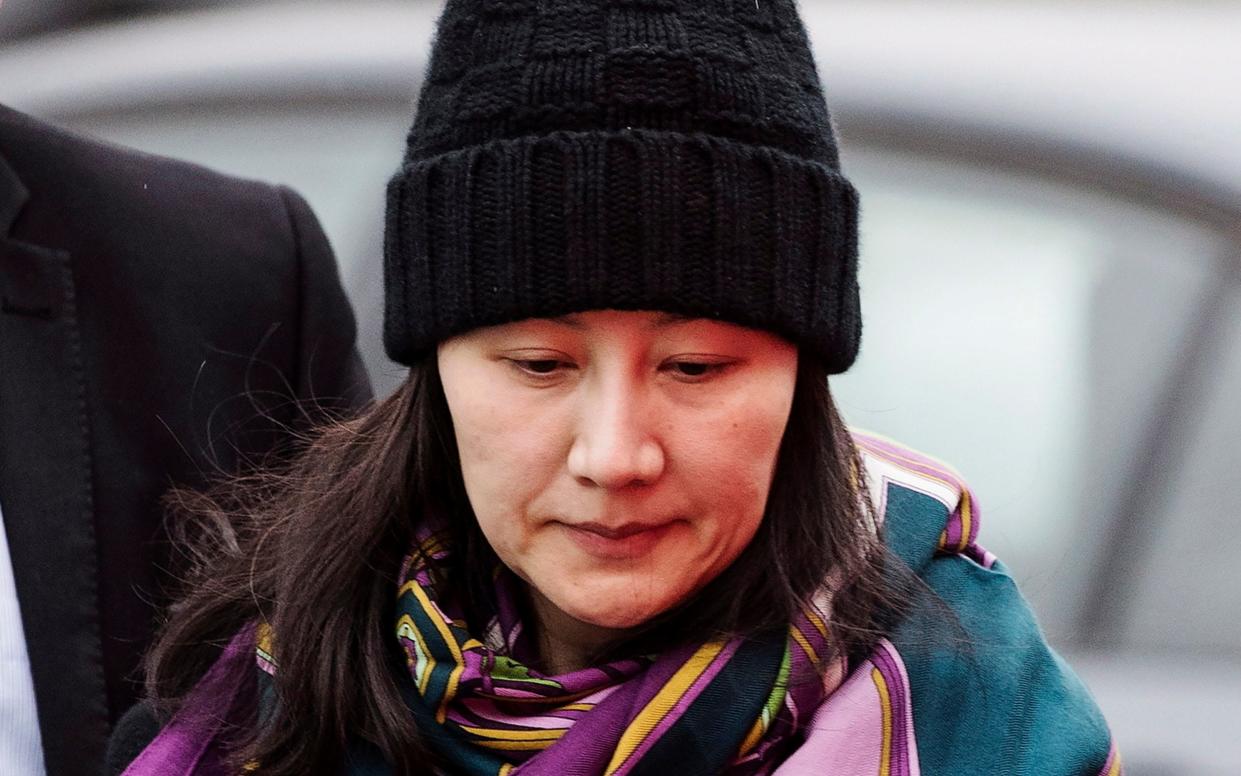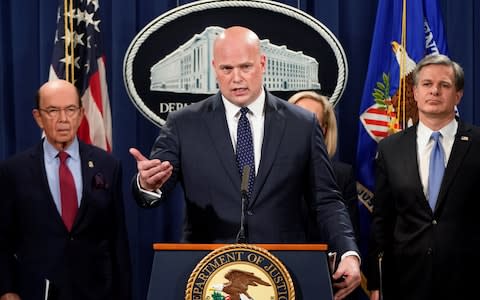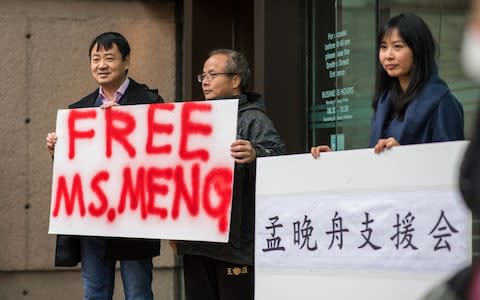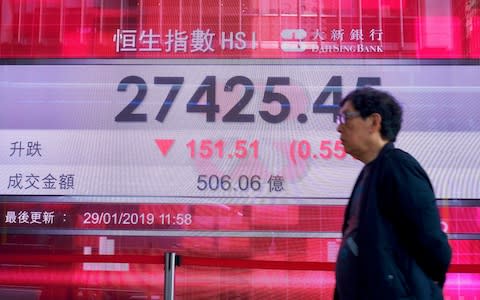China must tread fine line as US fires latest salvo against Huawei in 'new Cold War'

The US charges against China's Huawei are the latest salvo in an escalating "new Cold War" that is developing between the two superpowers.
In a move that ratchets up tensions between Washington and Beijing, the United States on Monday charged the Chinese technology giant, its chief financial officer and two affiliates with bank and wire fraud to violate sanctions against Iran.
Separately, the Justice Department also accused two Huawei subsidiaries of 10 counts of stealing trade secrets, wire fraud and obstructing justice for allegedly stealing robotic technology from carrier T-Mobile US.
"These indictments are a sign of new geopolitical contest between the US and China which will be similar to the Cold War, but quite different," said Brendan Thomas-Noone, a researcher at the United States studies centre at the University of Sydney. "We will need to come up with a new term to describe what is happening."
The US move drew a sharp response from Beijing, which has already lashed out over the arrest in December of Huawei's chief financial officer, Meng Wanzhou, in Canada.

China hits out at 'strong political motivations'
"There are strong political motivations and political manipulations behind the actions," ministry spokesman Geng Shuang said in a statement, urging Washington to stop "the unreasonable suppression of Chinese companies including Huawei".
Meng was detained at the behest of the United States, where she is wanted for violations of Iranian sanctions. US authorities plan to formally file for her extradition by a deadline on Wednesday.
In apparent retaliation, two Canadian citizens have been detained on national security grounds and another was sentenced to death for drug trafficking.
"The Chinese government's response to the arrest of Meng Wangzhou, with threats and taking hostages, has demonstrated the extent to which Huawei is linked to Beijing's national ambitions and objectives," said Elsa Kania, an analyst at the Center for a New American Security (CNAS).

The charges come just days before US-China trade talks are set to resume in Washington, although Commerce Secretary Wilbur Ross said the two cases are "wholly separate" from the trade negotiations.
But the negotiations mean Beijing will have to tread carefully in how it responds to the US charges.
"The timing of these indictments puts a lot of pressure on Beijing to think hard about its response, if any," Mr Thoman-Noone told The Telegraph.
"Arresting American citizens, or closing American companies from operating in China, will be a much tougher decision than going after Canada."
Huawei 'offered rewards for trade secrets'
Donald Trump has cited China’s theft of intellectual property as one of the main issues in his ongoing trade dispute with China.
Tom Uren, a senior cybersecurity analyst at the Australian Strategic Policy Institute, said there had been a concerted effort by China to steal trade secrets and intellectual property.
"One of the striking allegations in one of the Huawei indictments was that Huawei China had a formal policy to reward employees who stole confidential information from competitors," he told The Telegraph.
"I’m not aware of this kind of brazen and large-scale state sanctioned intellectual property theft being perpetrated by US companies or the US government. Or even occurring elsewhere, really."
As the world's biggest telecommunications equipment maker, Huawei is at the heart of a developing battle between China and the West.
The main issue in recent months has been to do with 5G technology, for which Huawei is seen as a world leader. Despite its technological advances, however, countries have either been reluctant to use its technology or have banned its firms from using it altogether.
The Trump administration is trying to prevent American companies from buying Huawei routers and switches and pressing allies to do the same. US security experts are concerned that the equipment could be used to spy on the United States.
"China is becoming a technological powerhouse with the potential to challenge US leadership in today's strategic technologies," Ms Kania said.
"In some respects, the controversy over Huawei is emblematic of this techno-strategic competition."
China warns of 'Cold War mentality'
Writing in The Telegraph at the weekend, Liu Xiaoming, China’s ambassador to the UK, stressed that national security fears are "groundless and misleading".
"The UK owes its economic and social vitality to a profound tradition of openness and inclusiveness. I hope and believe that it will remain committed to this tradition, and reject regression, seclusion, confrontation and a 'Cold War' mentality," Mr Liu wrote.
Yet this "Cold War" differs greatly to the one waged between the US and the USSR. For starters, as the trade talks shows, the two countries are far more entangled economically.

Where the Armageddon scenario was historically a nuclear war, the atomic option for China is the more than $1.1 trillion in US securities that Beijing holds. Were it to sharply reduce those holdings, it would hurt the US significantly - but it would also sustain heavy losses itself.
And while the Space Race dominated the "Cold War" (and continues to be a prominent battleground between major powers), advances in technology is a key priority for the two rivals now.
"China seems to recognise that technology is important for competition and growth and has a strategic focus on improving its competitiveness in certain important technologies like Artificial Intelligence, robotics, information technology and others," Mr Uren said.
"We are certainly seeing a clash between the values and behaviour of Western liberal democracies with that of the Chinese communist party."
And while the US was currently ahead in the tech race, "China has both government focus and a plan to challenge in the longer term", he added.

